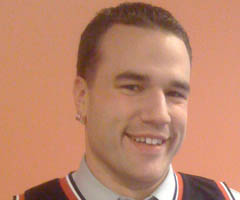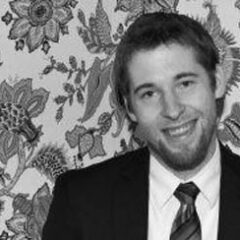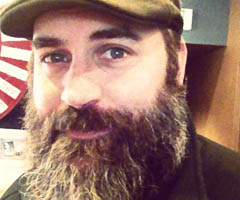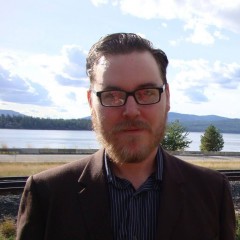Editor’s note: This story will be updated throughout the day as more FAVS writers respond.
The racial identity of Rachel Dolezal, the newly elected Spokane NAACP president, is in question after local and national media published an interview with her estranged parents, who say Dolezal’s ancestry is Czech, Swedish and German.
The response, at least in online comments and on Twitter (#racheldolezal), has been mostly been shock, fury and confusion.
FAVS is a place where people of all religious backgrounds can come to discuss issues of faith, ethics and community. So, we asked our writers to respond.
What are your thoughts on the recent stories about Rachel Dolezal’s identity? How should the faith community respond?

From Hyphen Parent:
My initial response to the developing story was disbelief. As more information is revealed, I find it impossible to continue to try to find reasonable explanations. I’m angry that we were lied to. I don’t regret bringing my kids to the arms of compassion event at the NAACP, but I hate that we’ve been deceived and what’s worse is that now others may be quick to brush aside racism and harassment and use this to justify themselves. This creates so much potential for further problems both for those who are biracial and already have to deal with the issues unique to that, but also for those racists who will latch on to this and use it to discredit others.
People face struggles directly related to their race. Racism exists and is destructive. There is much to be learned from listening to those who have those experiences. Rachel Dolezal is not one such person and in pretending to be, she took positions, time, and energy away from black women who had true stories to tell.

From John Hancock:
I’ve been in a discouraged swirl about this. I know her only from the press coverage of her work and the NAACP chapter, and from her articles in the Inlander. Those stories have made me a fan, because she’s provided youth and energy to what seemed like a moribund organization of elder advisors. But I think personal authenticity is a requirement for leadership. We trusted her story, and some of it may not be true. That damages not just her, but the concepts she preached. I hope she survives, personally and professionally, because Spokane needs the sort of progress she has advocated.

From Matthew Sewell:
While the situation surrounding Rachel is incredibly unfortunate and perhaps profoundly disappointing for some, we would all do well to remember one thing before reacting in any way to this story — every one of us, like Rachel, is human, and is therefore imperfect and capable of sin. We all have profound brokenness in our lives, and we shouldn’t forget that in the least when considering Rachel’s situation.

From Jim Downard:
Regarding the Dolezal case, it is seldom wise or fruitful to try and build a house on a compromised foundation. Even more so for someone aspiring to leadership of an organization, where any spokesperson will inevitably be subjected to the most careful scrutiny, and any falling short will be taken as an “example” by those seeking to undermine the impact of that organization.

From Joe Newby:
Simply put, it seems she got caught with her hand in the proverbial cookie jar. Now she’s paying the price. Not only did she apparently fool a number of people — including the City of Spokane — it seems she also threw her own family under the bus. Her answer to the question of whether or not she’s really African-American speaks volumes: “I don’t understand the question.” The faith community can and should forgive her, but she needs to face the consequences for her actions.

From Kyle Franklin:
I am not opposed to a white woman working for the NAACP. I believe, though, that her voice — as someone apparently not directly affected by racism — would have been more effective if she had used her voice—her seemingly WHITE voice — to get involved and advocate for equality simply because she likely was not directly affected. I think that her possible deception (and the fact that the NAACP appears to be complicit) is what hurts her position and tarnishes her, and the NAACP’s, standing and reputation in the community.

From Blaine Stum:
While I certainly admit I do not know her whole life story, I’m shocked by the allegations and disappointed that it seems Rachel chose not to be honest with many of us who worked by her side. These allegations will need to be discussed openly and honestly with people of color in our community and with members of the NAACP. I can only hope that the reputation of the NAACP is not tarnished by this story, as we desperately need their voice and presence in Spokane.

From Pastor Jan Shannon:
I think the faith community should pray for Rachel, her parents, and her kids. Whatever else we find out, there is certainly more than enough pain to warrant our compassion. I keep in mind the Bible verse which says, “Only God can know the heart.”












Charlie, you bring up an excellent, if painful point about America’s history. The ‘one drop rule’ which was used to oppress blacks and keep them from voting rights and land rights, if applied liberally to all Americans, would yield perhaps tens of thousands more black people. It is said that you don’t have to go very many generations back to find African blood in seemingly white people. At what point would it be acceptable for those folks to claim their blackness?
Being a white male means I need to listen extra, extra carefully and respectfully to those unlike myself. But, being a white male does not obligate me to ignore or rationalize deception and a lack of personal integrity. I sincerely hope and pray that Ms. Dolezal will get the help and support she needs to sort out the personal issues which compelled her to present herself as someone other than who she really is. I believe the NAACP needs and deserves leadership which does not compromise its own integrity. Too much is at stake in
a society with so much racial tension still afoot.
Being a white woman having worked in business (a “man’s” world) for over 25 years, this situation causes me to pause and think about women throughout history. In decades/century’s past, some women would bind their breasts and cut their hair to work and live as a man. Perhaps they wanted the privilege of what men of the time had, but could not acquire in their female form. I am not advocating changing one’s identity to obtain the privileges afforded another gender, race or class of people. What I am advocating is to first try and understand why someone would do this, as I’m sure the reasons are varied and personal. Second I would propose that the more we understand the less we might judge and the sooner we will be able to find a way to help neutralize the allure of desiring to align with another race, gender or class simply because of the privilege afforded one over the other. Imagine if we were all created and treated equally, the need to alter ones identity may lessen.
Well said, Carrie. My first reaction to your post was to wonder what we would think, instead, of a man trying to pass himself off as a woman for career reasons, but then it ‘clicked’ that you’re talking about women, not making a comparison between gender and race. Lots of pitfalls of assumption, around this topic! I think you’re right-on that our first job is to ponder what opportunities she was trying to create, and why.
First of all, I’d like to thank those who posted and those who commented for their restraint and civility. For my part, I am troubled by the insinuations of the media–not so much about her race, because frankly “race” is an incoherent concept that ultimately boils down to how other people perceive you and treat you, but about the possibility that the harrassment she allegedly experienced was faked. Because there are hateful people out there, and they do harrass and threaten those they perceive to be different from themselves, the skepticism engendered in the public by these allegations will make it that much harder for the next victim to be taken seriously. And that is a tragedy.
I don’t know if Rachel Dolezal lied to the city, to the media, to her friends. Based on what I’ve seen thus far, I suspect that she did, and that is unfortunate. And assuming she did lie, I have no idea why she did. What I do know is that she worked towards building a more just world, a better world, and I respect that work and that desire. But her work and her desire, noble though they may have been, do not require (and certainly do not excuse) the deception it seems she committed. I am certainly in no position to cast the first stone, but I can raise my voice in defense of the truth and try to hold those who offend against it to account.
I’m someome who has dealt with harassment, as a black person living in an all white neighborhood. I’m disturbed by all of this mostly because she could be lying about something so serious. I woke up one morning in 2000 to find that someone had spray painted swatiska symbols on my house, my car, the driveway, and on the street right in front of my house…A newly divorced single mother with two small children and the cowards crept up on my home in the middle of the night and did this…I was so so afraid they’d come back one night and do worse. This lady needs to self reflect and consider the harm she’s done.
I agree. And I hope that she will, and that she’ll emerge from this wiser and stronger. More than that, I hope our community will, and that the voices of those who do experience discrimination won’t be ignored because of her choices.
I know someone who self-identifies as biracial, in part because he IS biracial (Native American parent and white parent) and in part because Native American identity, culture, and tradition have been and are very important to who he is. However, his appearance is likely to strike most observers — perhaps nearly all — as white. I understand that the situation we are talking about today is different from the one I’m bringing up, but I have sometimes wondered whether this individual gets flak from white people, Native American people, and others for identifying as he does even though he could, if he wanted to, fail to mention his biracial heritage, “pass” as white, and benefit from white privilege without an asterisk. Some people think Jewishness is a race. Yet within Jewishness there is the same skin-color spectrum we find in the world as a whole (because it is a cultural and faith tradition that theoretically anyone could convert to or otherwise enter into). I hope that this story helps us have some long overdue and meaningful conversations. I think FAVS is as likely a place as any for this to occur.
As I was pondering this story overnight, it came to me that one reason her actions are problematic is that I believe those of us who have privilege (of race, economics, gender or other) have a duty to critically examine that privilege and work for a more equal world. What she has done, it seems, is shed her privilege in the first place to gain a different kind of power. I have often a range of negative things connected to my being white: guilt, shame, regret, confusion, awkwardness. I think Rachel, rather than address those hard feelings and work from within her privilege, skirted those feelings and the questions they raise.
A faith response, as our editor requested, includes encouragement to always tell the truth while practicing abundant mercy.
What could it mean for those of us here in Spokane, in response to this story, strive to tell our own truths more deeply, name fears and wrestle with hard feelings? Maybe wholesome fruit can be born from this trouble in that way. Talking about privilege is hard work, but clearly it needs modeling and practice in our community.
I’d also like to add a kudos to the other comments, in the post and out, for being civil and fair.
oops. above it should read: “I often *feel* a range of negative things…” thanks.
http://www.bostonglobe.com/opinion/2015/06/13/rachel-dolezal-story-lesson-how-racism-works/J8R27qgq2YfDRUuOVhpYGI/story.html?s_campaign=bostonglobe%3Asocialflow%3Afacebook
Personally, I have never bought into this whole “privilege” nonsense, be it “white” or anything else. I was raised by parents/grandparents who believed in a strong work ethic and who believed that one ought to be judged by how they conduct themselves. For us, color or race was never an issue. The fact that we had family members hung by the KKK for saving blacks hung by the KKK may have played a part in that.
For me, it’s as simple as that. There’s no claiming blackness or rejecting privilege or any of that. If you’re black, you’re black. If you’re white, you’re white. So what. The problem here is that Dolezal was not born a poor black girl. She was born white, then spent nearly a decade building a false persona. Now, she’s been caught and she’s lost all credibility.
“For us, color or race was never an issue.”
Ironically, that’s actually a form of white privilege. You had the ability to live in a way that made color a non-issue for you. That’s a huge advantage that is available to most white people, but not people of color.
Um, no. Our family chose to ignore race long ago.
Statements like this are the reason my eyes glaze over when I hear people talking about “privilege.” As far as I’m concerned, “privilege,” especially so-called “white privilege” is a false construct based on a false premise designed to advance a radical leftist agenda.
Um, yes. “Our family chose to ignore race long ago.” That’s literally my point. You had that choice. You can choose whether or not race is an issue for you. Minorities can’t. It is an issue for them because they are treated differently, regardless of what they “choose” to ignore. That’s pretty much the definition of privilege.
You said, “Minorities can’t. It is an issue for them because they are treated differently, regardless of what they “choose” to ignore.”
Wow. If I were a minority, I’d be offended by the notion that I couldn’t take personal responsibility for my own actions.
It’s clear we’re not going to see eye-to-eye on this, so we’ll just have to agree to disagree agreeably and move on. Have a good day.
Mr. Weidert: I think the words “sometimes” needs to be placed between “treated” and “differently” ….
You might find that the treatment of ethnic minorities in the U.S. is subtly different from how white people are treated in all or nearly all contexts. If this were lived experience for me or you — maybe for you it is? — it would be easier to speak to the point.